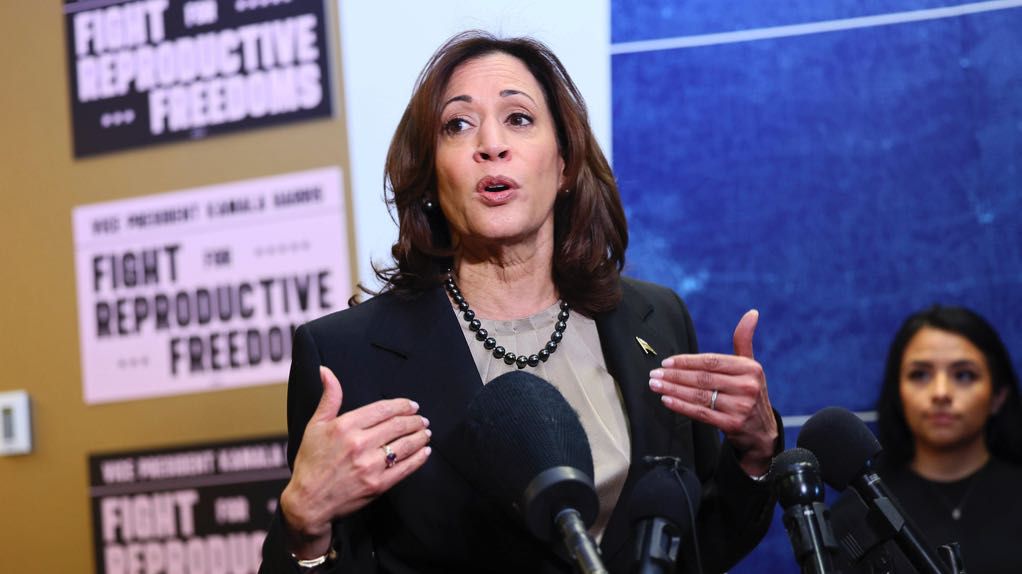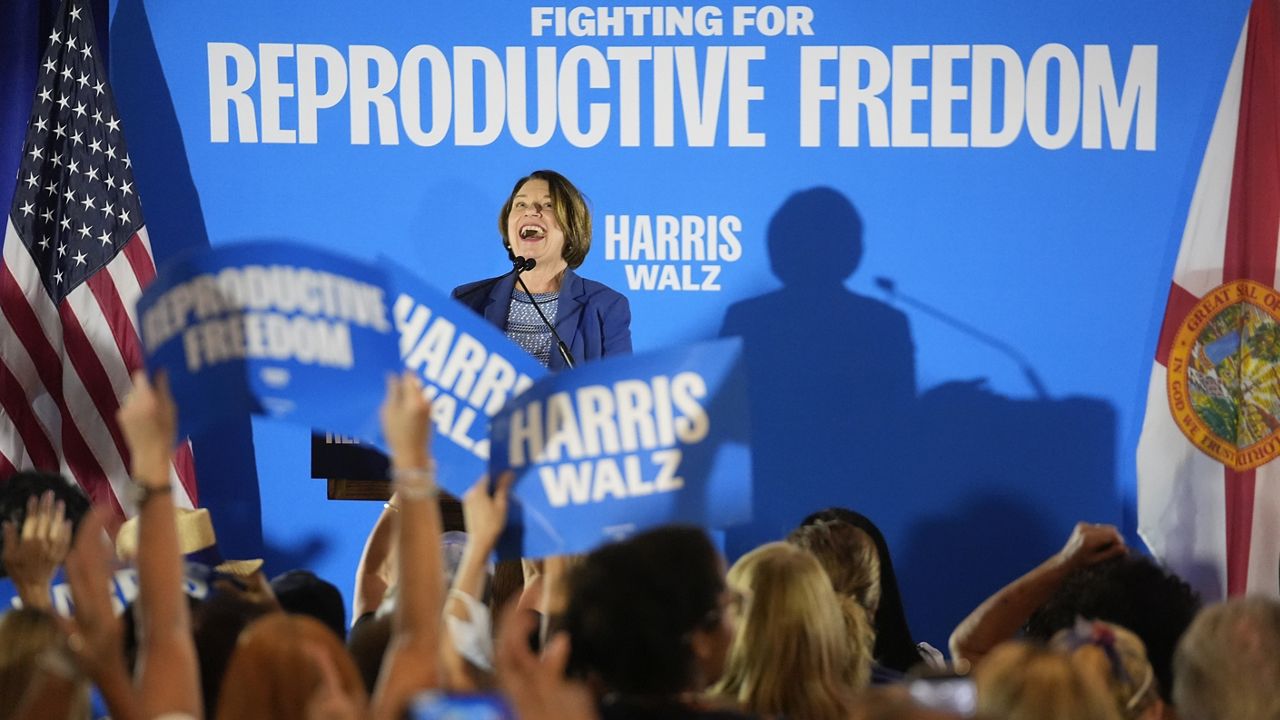For the second time this year, Senate Republicans blocked a bill aimed at protecting and expanding access to in vitro fertilization services nationwide.
The Right to IVF Act, which Senate Republicans blocked in June, includes former President Donald Trump’s recent campaign pledge to make insurance companies pay for the treatments.
The measure needed 60 votes to pass. It failed in a 51-44 vote, with just two Republicans -- Alaska Sen. Lisa Murkowski and Maine Sen. Susan Collins -- crossing party lines to support the bill.
"Senate Republicans just blocked the bill to protect IVF—AGAIN," Senate Majority Leader Chuck Schumer, D-N.Y., said on social media after the vote. "They keep trying to tell everyone who will listen that they support IVF. But their actions speak louder."
Republicans criticized the vote as an example of government overreach and a show vote by Democrats.
"Republicans support IVF, full stop," South Dakota Sen. John Thune, the Senate Republican Whip, said on Tuesday. "This is not an attempt to make law. This is not an attempt to get an outcome or to legislate. This is simply an attempt by Democrats to try and create a political issue where there isn't one."
But Democratic Illinois Sen. Tammy Duckworth, one of the bill's authors, urged her Republican colleagues to put their money where their mouth is: "They say they support IVF: here you go, vote on this."
Republicans have tried to propose alternatives to the legislation, which Democratic critics say does not go far enough. Florida Sen. Rick Scott, another member of Republican leadership, sought unanimous consent to pass a bill to make IVF more affordable by doubling contribution limits to Health Savings Accounts on Monday night, but it was blocked by Oregon Sen. Ron Wyden, who said that "struggling to afford IVF will get virtually no benefit" from the proposal.
Texas Sen. Ted Cruz and Alabama Sen. Katie Britt sought to have their IVF Protection Act, which Senate Democrats rejected in June, also passed unanimously, but that too was blocked, this time by Washington Sen. Patty Murray. That bill would have made receiving Medicaid funding conditional on allowing IVF benefits, but did not explicitly protect the procedure. Democrats have expressed skepticism about how it can be enforced and what it actually covers.
"I have been perfectly clear about the glaring issue with this Republican bill,” Murray said Tuesday. “The cold, hard reality is this Republican bill does nothing to meaningfully protect IVF from the biggest threats from lawmakers and anti-abortion extremists all over this country. It would still allow states to regulate IVF out of existence. And this bill is silent on fetal personhood, which is the biggest threat to IVF.”
Cruz said that by rejecting his proposal, Democrats "threw away the opportunity to protect IVF in all 50 states."
The vote came as Democrats are seeking to put the issue of reproductive rights front and center ahead of November's elections, particularly as they face an uphill battle to try and maintain control of the Senate.
"Every woman in every state must have reproductive freedom," Vice President Kamala Harris, the Democratic presidential nominee and the Biden administration's point person on reproductive rights issues, said in a statement. "Yet, Republicans in Congress have once again made clear that they will not protect access to the fertility treatments many couples need to fulfill their dream of having a child."
"Their opposition to a woman’s freedom to make decisions about her own body is extreme, dangerous, and wrong," she added. "Our administration will always fight to protect reproductive freedoms, which must include access to IVF."
Democrats in particular took aim at Ohio Sen. JD Vance, Donald Trump's running mate, for skipping the vote; Vance was on the campaign trail in Michigan on Tuesday afternoon while the vote was taking place in Washington.
"Today, Vance couldn’t be bothered to show up to vote on protecting IVF access, after voting against the same protections in June," said Democratic National Committee spokesperson Aida Ross. "Vance is showing us who he is and we should believe him."
The issue of IVF burst into the political spotlight earlier this year after a decision from Alabama’s Supreme Court declaring that frozen embryos are considered children led to fertility clinics in the state to close their doors and sparked questions about future access to the treatments nationwide. (Alabama legislators later passed a law signed by the state's Republican governor to reverse the ruling.)
It also added another political layer to Democrats’ efforts to highlight the issue of reproductive rights on the campaign trail following the overturning of Roe v. Wade in June 2022.
Following the Alabama decision, Democrats quickly moved to add IVF to their messaging against Republicans on the topic, including bringing the Right to IVF Act to the floor in June this summer. Only two Republicans crossed the aisle to support the legislation, which would establish a statutory right to access such treatments and seek to bring down the costs through measures such as requiring employer-sponsored insurance plans and other public insurance plans. Republicans at the time criticized the vote as a political move by Democrats.
But since then, Trump has declared himself a “leader” on the issue during last week’s presidential debate and announced a policy proposal mandating that the federal government or individual insurance providers would pay for all costs associated with IVF treatment if he is elected again.
Following the overturning of Roe v. Wade, which sent the issue of whether and how much to restrict access to abortion back to individual states and led to bans across the country as a result, Democrats believe reproductive freedom is a winning issue for the party. They point to red states like Kansas and Ohio voting to protect access to abortion and polls showing the majority of Americans disapprove of Roe’s reversal.
Spectrum News' Maddie Gannon contributed to this report.
This is a developing story. Check back later for updates.









